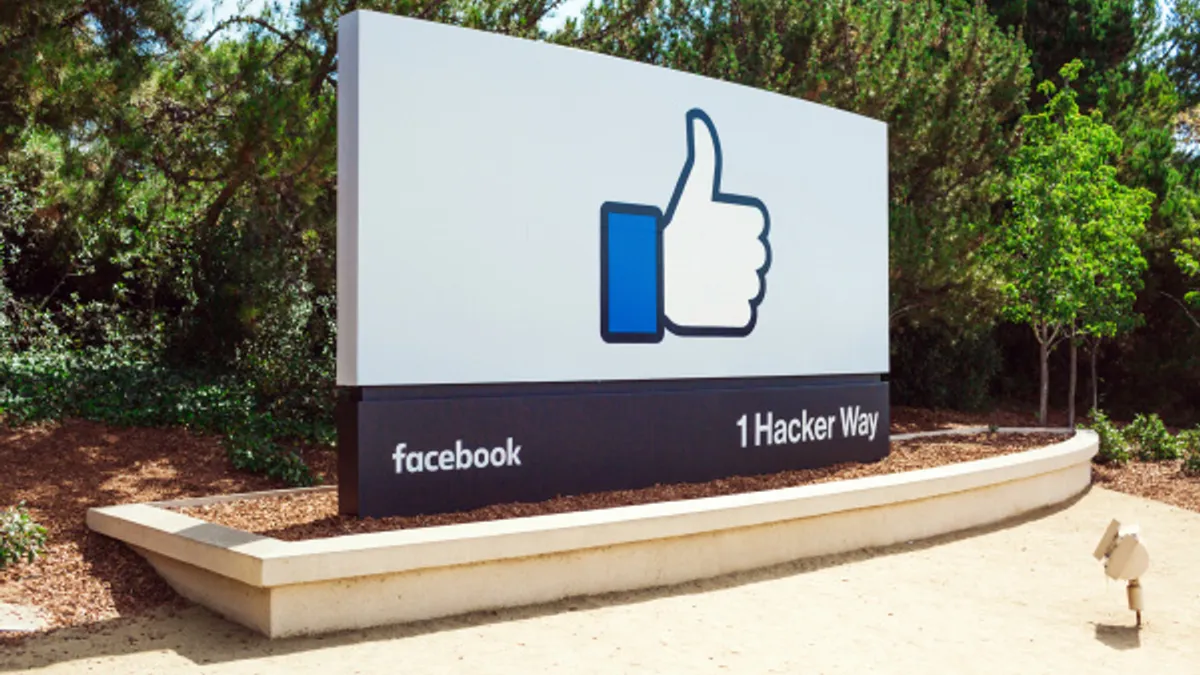Dive Brief:
- More details have emerged around a rumored video chat device being developed by Facebook, per a report in Cheddar citing unnamed sources familiar with the matter. Called Portal, the hardware is set to be released at Facebook's annual F8 conference in early May and will be available for consumers to purchase in late in 2018 for $499.
- Portal's focus will be on standard video chatting between friends and family, rather than he the types of artificial intelligence-based assistants that power other IoT devices like Amazon's Echo products or Google Home. Cheddar reported the device will feature a wide-angle camera to recognize users' faces, respond to voice commands and stream services like Netflix and Spotify.
- This news comes after Facebook announced plans to discontinue its voice assistant M on Jan. 19. Last August, multiple anonymous sources told Bloomberg that Facebook was working on a similar device to Portal that was to be announced at this year's F8 and hit shelves in 2018. The company at the time had just acquired the AI-focused startup Ozlo.
Dive Insight:
Despite the pending demise of M, Facebook appears to still be dedicating resources to competing in the increasingly crowded connected home device space, which is currently dominated by Amazon and Google and is expected to see Apple enter as third major player sometime this year. Portal will come into competition with Amazon's line of voice-activated devices, namely the Echo Show, which combines a smart speaker, a touchscreen and the Alexa digital assistant. At the Consumer Electronics Show in Las Vegas this week, Google announced partnerships with Sony, Lenovo and others that will let it bring its Google Assistant to smart speakers with touchscreens as well, according to Reuters.
Facebook CEO Mark Zuckerberg said Portal's ability to inspire change in user behavior is more important than any profits it may spur, Cheddar reported. The $499 price tag is not final but would make the device more expensive than similar offerings from Google and Amazon. Facebook has tried and failed to see success with hardware development several times, and the steep price point of Portal combined with a lack of a noteworthy AI like Google Assistant or Alexa could seriously hinder appeal with consumers who have no shortage of alternatives. The device would presumably be integrated with Facebook's other products like Instagram and Messenger, along with third-party services and apps such as Spotify and Netflix.
Facebook's rumored push to release Portal this year, and the booming market for IoT devices overall, signals that marketers need to start thinking more about developing strategies that integrate bleeding edge technology like voice-activation in order to reach users directly in the home.














